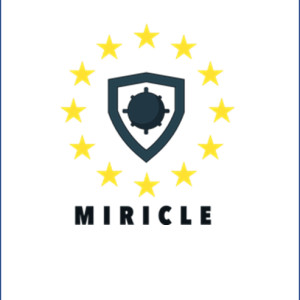 \
&
Contact us
\
&
Contact us
 \
&
Contact us
\
&
Contact us
Partnership website: https://www.euramet.org/research-innovation/metrology-partnership/
The European Partnership on Metrology is co-funded by the Member States and the European Union with an expected budget of around 690 million euro. The expected impact of the European Partnership on Metrology is manifold, as it will support a wide range of policies, commerce and advancement of key European challenges.
Metrology, the science of measurement, is a building block for an industrialised and increasingly globalised and digital society: Reliable measurements are essential for innovation in industry, research, trade and regulation. New societal challenges and emerging technologies increase the need for accurate, precise, and trustworthy measurements and thus for novel measurement capabilities.
The Metrology Partnership aims to support accelerating the transition towards a green, climate neutral and digital Europe, as well as strengthening the resilience, competitiveness, and economic growth of the European industry.
The Partnership builds on the progress achieved under the previous European Metrology Research Programmes, and aims to break new ground by contributing to the development of self-sustaining, coordinated metrology infrastructures, with the capacity to continue joint research and innovation after 2030.
Steering Group
The Steering Group is an advisory body of the Metrology Partnership established in accordance with Metrology Decision. It gives advice to the Metrology Partnership on the emerging priorities for metrology research at European level and on how to increase the impact of its research on European industry, economy and society.
The group will also monitor scientific achievements in specific sectors. All recommendations made by the Steering Group shall be made publicly available on the website of the European Commission.
The Steering Group is an advisory body of the Metrology Partnership established in accordance with Metrology Decision. It gives advice to the Metrology Partnership on the emerging priorities for metrology research at European level and on how to increase the impact of its research on European industry, economy and society.
Metrology partnership steering group members
Contact
Partners: EURAMET - secretariat@euramet.org
About EURAMET
EURAMET is the Regional Metrology Organisation (RMO) of Europe. They coordinate the cooperation of National Metrology Institutes (NMI) in Europe in fields such as research in metrology, traceability of measurements to the SI units, international recognition of national measurement standards and related Calibration and Measurement Capabilities (CMC). Through Knowledge Transfer and cooperation among their members EURAMET facilitates the development of the national metrology infrastructures.
Partnerships group the EC and private and/or public partners, to coordinate and streamline the research & innovation initiatives and funding in some selected key domains.

The Miricle project, ‘Mine Risk Clearance for Europe’, obtained funding under the European Defence Industrial Development programme call ‘Underwater control contributing to resilience at sea’. The main objective of the project was to achieve a European and sovereign capacity in future mine warfare and create a path for the next generation ‘made in Europe’ countermeasure solutions. In order to realise this objective, Miricle addressed various stages: studies, design, prototyping and testing. These stages inter alia included the successful testing of an XL Unmanned Underwater Vehicle, a protototyped mine disposal system and multiple innovative systems to detect buried mines. Flanders Marine Institute (VLIZ), was one of the five Belgian partners in the consortium. Within the project, VLIZ was able to forward its research on the acoustic imaging of the seabed to spatially map and visualize buried structures and objects - in this case buried mines - in the highest possible detail. VLIZ also led the work on ‘Port and Offshore Testing’, building on the expertise of the institute in the field of marine operations and technology.